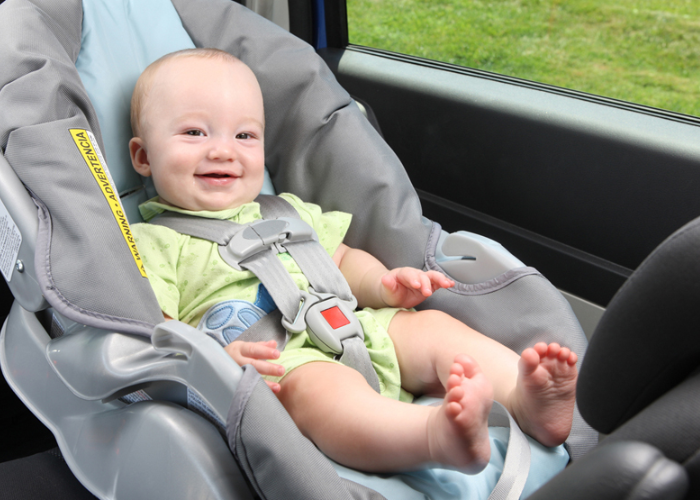Car seat laws in North Carolina were put in place to ensure the safety of children who ride in motor vehicles. According to the NC Department of Transportation, all children under the age of 8 must be properly secured in an appropriate child safety seat or booster seat while riding in a motor vehicle.
General Information of NC Car Seat Laws
North Carolina is one of the many states that have adopted car seat laws for the safety of children. The laws of North Carolina are designed to help ensure that young children are kept safe while riding in a vehicle. All drivers in North Carolina are required to transport children under the age of 8 in a car seat or booster seat. The type of seat required is based on the age, weight, and height of the child.
The law also states that the car seat must be used in the back seat of the vehicle and must be properly secured. Additionally, all children under the age of 16 must wear a p belt when in a moving vehicle. Failure to comply with these laws may result in fines and other penalties. It is important for all drivers in North Carolina to be aware of the car seat laws and to ensure they are properly restraining their children while driving.
Car Seat Requirements by Age and Weight
Car seat laws in North Carolina are designed to keep children safe while traveling in a vehicle. The laws require that children under the age of eight must ride in a child safety seat or booster seat that meets federal safety standards. The type of seat and the age and weight requirements vary depending on the child’s age and weight. For children under the age of one, they must ride in a rear-facing car seat. T
his car seat must be used until the child reaches a weight of at least 20 pounds or a height of 29 inches. For children one to three years old, they must ride in a forward-facing car seat with a five-point harness. This seat must be used until the child is at least 40 pounds or 43 inches tall. Children four to seven years
must ride in a booster seat or other safety device that meets federal safety standards. This seat must be used until the child reaches a height of 57 inches or is at least 80 pounds. Finally, children eight through twelve must ride in a seat belt that is properly positioned and securely fastened.
It is important to note that in North Carolina, all children under the age of 13 must ride in the back seat of the vehicle. Furthermore, all car seats, booster seats, and seat belts must be used according to the manufacturer’s instructions. If an adult is found to be in violation of the law, they may face fines and potentially other legal repercussions. Additionally, parents are encouraged to take their child to a certified car seat technician to ensure that their child’s car seat is properly installed and safely used.
Benefits of NC Car Seat Laws
Car seat laws in North Carolina are designed to protect children from serious injury or death in the event of a motor vehicle crash. These laws specify the minimum age, height, and weight requirements that children must meet in order to be safely restrained in a car seat. The benefits of these laws are twofold. First, they help keep children safe during a motor vehicle crash, and second, they help parents and guardians ensure that their children are properly secured while in the vehicle.
The primary benefit of North Carolina car seat laws is safety. Car seats are designed to reduce the risk of injury or death in the event of a motor vehicle crash. They provide an extra layer of protection for children, keeping them secure and preventing them from being hurled forward in the event of a collision. Furthermore, car seats help keep children in the proper seating position, preventing them from being thrown out of the vehicle in the event of a crash.
In addition to providing safety, North Carolina car seat laws also benefit parents and guardians. These laws help ensure that their children are properly secured while in the vehicle. By adhering to the age, height, and weight requirements, parents and guardians can be sure that their children are safely restrained and that they are not at risk of being injured in the event of a crash. Furthermore, these laws help parents and guardians avoid receiving costly fines for violations of the law.
Overall, North Carolina car seat laws provide a variety of important benefits. By helping to keep children safe and helping parents and guardians ensure that their children are properly secured, these laws can help to reduce the number of serious injuries and fatalities caused by motor vehicle crashes.
Penalties for Violating NC Car Seat Laws
North Carolina has strict laws regarding the use of car seats for infants and children. Violating these laws can result in fines, court costs, and even jail time. Depending on the severity of the violation, the driver may be subject to a Class 3 misdemeanor, which carries a range of penalties including a fine of up to $200, up to 20 days in jail, or both. In addition to this, the driver may also be liable to pay court costs and additional fees.
If the violation is more serious, the driver may be subject to a Class 2 misdemeanor, carrying a range of penalties including a fine of up to $1,000, up to 60 days in jail, or both. Drivers may also be liable to pay court costs and additional fees. Furthermore, if the violation results in bodily injury to the child, the driver may face a Class A1 misdemeanor, which carries a fine of up to $10,000, up to 150 days in jail, or both. In addition to this, the driver may also face additional fines, court costs, and other penalties.
Conclusion
Car seat laws in North Carolina are very important for the safety of children. The state requires that all children under the age of eight must be in a car seat or booster seat, and they must be properly secured to the vehicle. Parents and guardians must follow these laws to ensure their children’s safety and to avoid fines and other penalties. Additionally, parents should stay informed of the new laws that are constantly being updated in the state to ensure their children remain safe and secure while riding in a vehicle.







